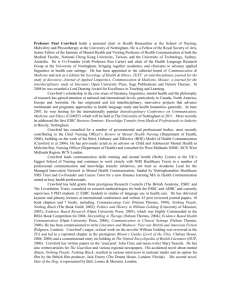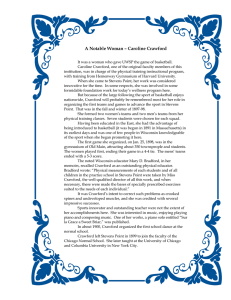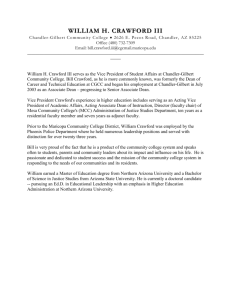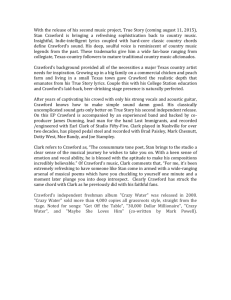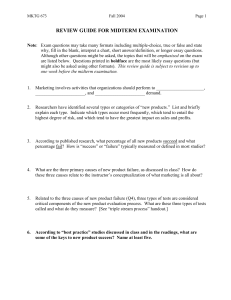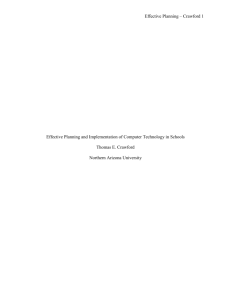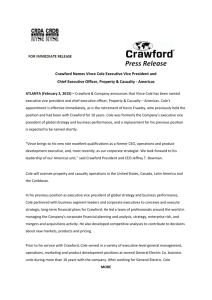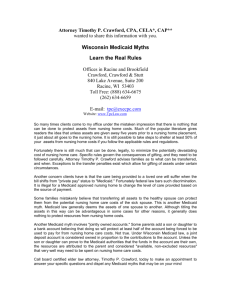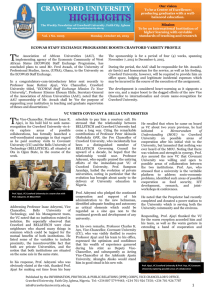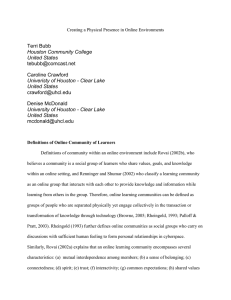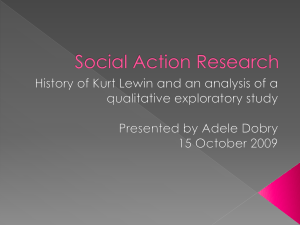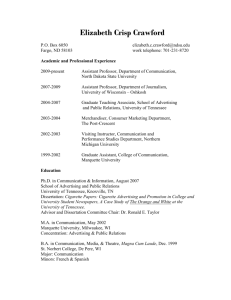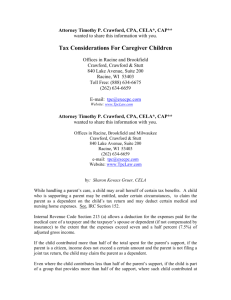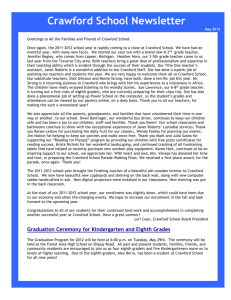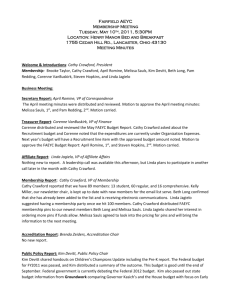BOE (PC - prif araith)2
advertisement
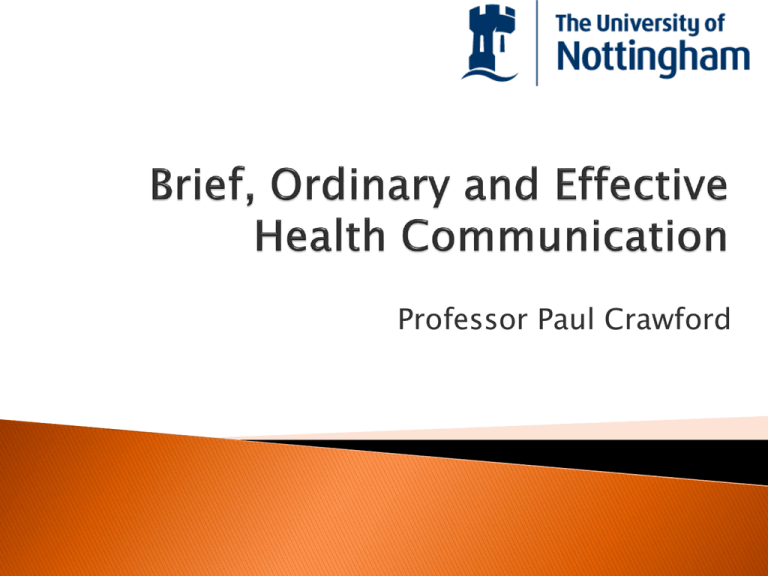
Professor Paul Crawford Shapes and transforms the world, establishes who we are, and who others are in relation to us Is the dominant activity in health care delivery as care Fatalities Poor compliance Patient dissatisfaction Poor outcomes Litigation © Nelson Thornes 2006 Brevity in health care interventions remains a high priority ‘High speed society’ ‘social acceleration’ (Rosa & Scheurman, 2008) ‘Blip Culture’ (Alvin Toffler, 1981) Practitioner time has often to be parcelled out sparingly (Deacon & Fairhurst, 2008) ‘You know it’s very much like a conveyer belt’ ‘turnover is very quick’ ‘you haven’t got enough time between patients to process’ ‘it’s a very quick turnaround’ From: Talking cleanliness in health and agriculture. RES-000-22-2289. Decompressing time and space (Menzies 2005) Counselling based Durative (‘time-greedy’) ◦ Brief ◦ Ordinary ◦ Effective The Tardis Effect (Brown et al, 2006) © Copyright BBC Brief interactions can be bigger ‘inside’ than they appear from the ‘outside’ Be ordinary Be extraordinary Text © Paul Crawford 2006; Image © Imogen Gray 2007 contributes to achieving good clinical outcomes driven by evidence-based practice and practicebased evidence promotes patient satisfaction sustained by policy, organisational (e.g. higher education and health services) and practitioner commitment Development of 30 Core Skills Informed Chief Nursing Officer’s Review of Mental Health Nursing (Department of Health, 2006) Described and theorised in: Brown et al (2006); Crawford et al (2006); Crawford & Brown (2009); Crawford & Brown (2010) Evidence based health communication New advances in researching communicative practice in healthcare ‘opening the gateway for career progression... providing understanding and knowledge about how individuals communicate... Tutor support was the best I have ever received’ 2010 graduate Email: english-postgrad@nottingham.ac.uk paul.crawford@nottingham.ac.uk Brown, B., Crawford, P. & Carter, R. (2006) Evidence-based Health Communication. Open University Press: Maidenhead. Crawford, P. & Brown, B. (2010) Fast healthcare: Brief communication, traps and opportunities. Patient Education & Counselling. Available online: DOI: 10.1016/j.pec.2010.02.016. Crawford, P. & Brown, B. (2009) Communication. In Mallik, M., Hall, C. & Howard, D. Nursing Knowledge and Practice: Foundations for Decision Making. 3rd ed. Balliere Tindall and the Royal College of Nursing: London. Crawford, P., Brown, B & Bonham, P. (2006) Communication in Clinical Settings. Nelson Thornes: Cheltenham Deacon, M. & Fairhurst, E. (2008) The real-life practice of acute inpatient mental health nurses: an analysis of `eight interrelated bundles of activity', Nursing Inquiry 15 (4): 330-340. Menzies, H. (2005) No Time: Stress and the Crisis of Modern Life. Douglas & Macintyre: Vancouver. Rosa, H. & Scheuerman, W.E. (2009) High-Speed Society: Social Acceleration, Power, and Modernity . Pennsylvania State University Press: University Park, PA. Toffler, A. (1981) The Third Wave. Bantam Books: London.
